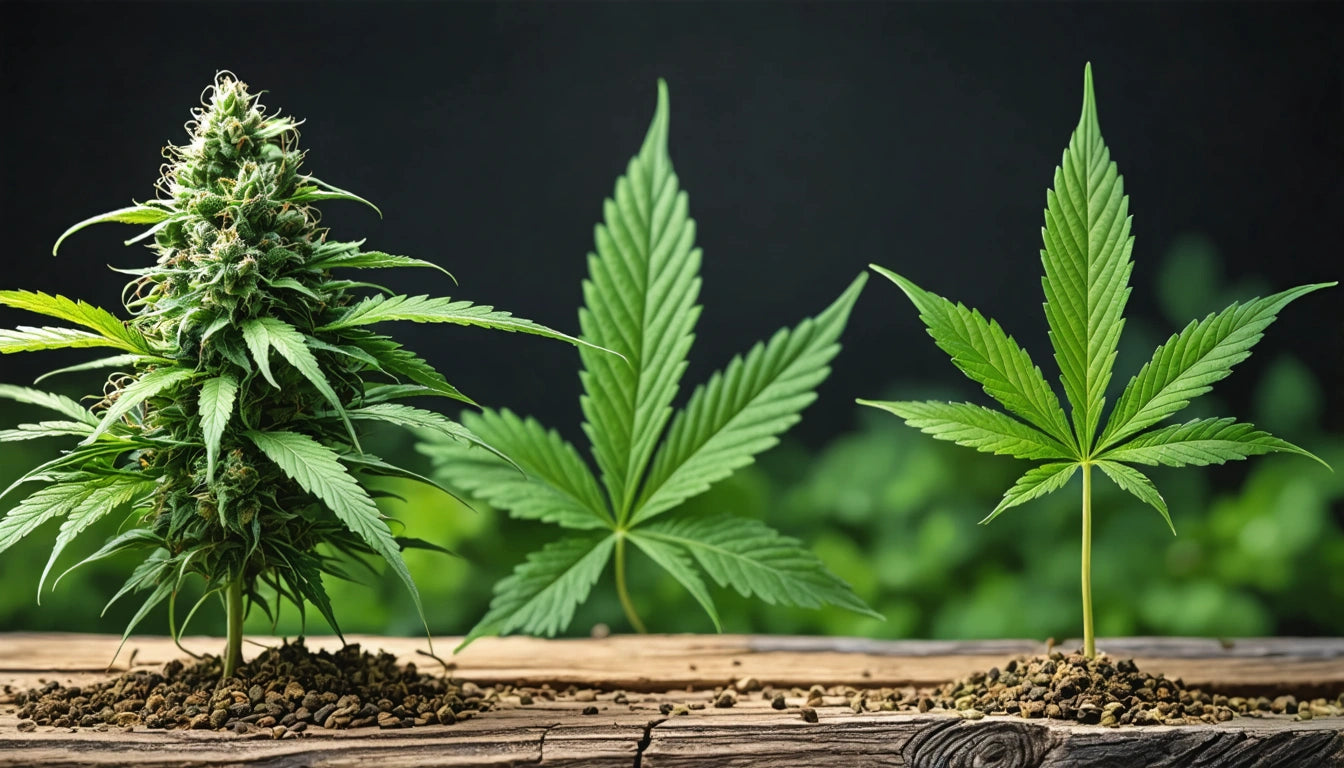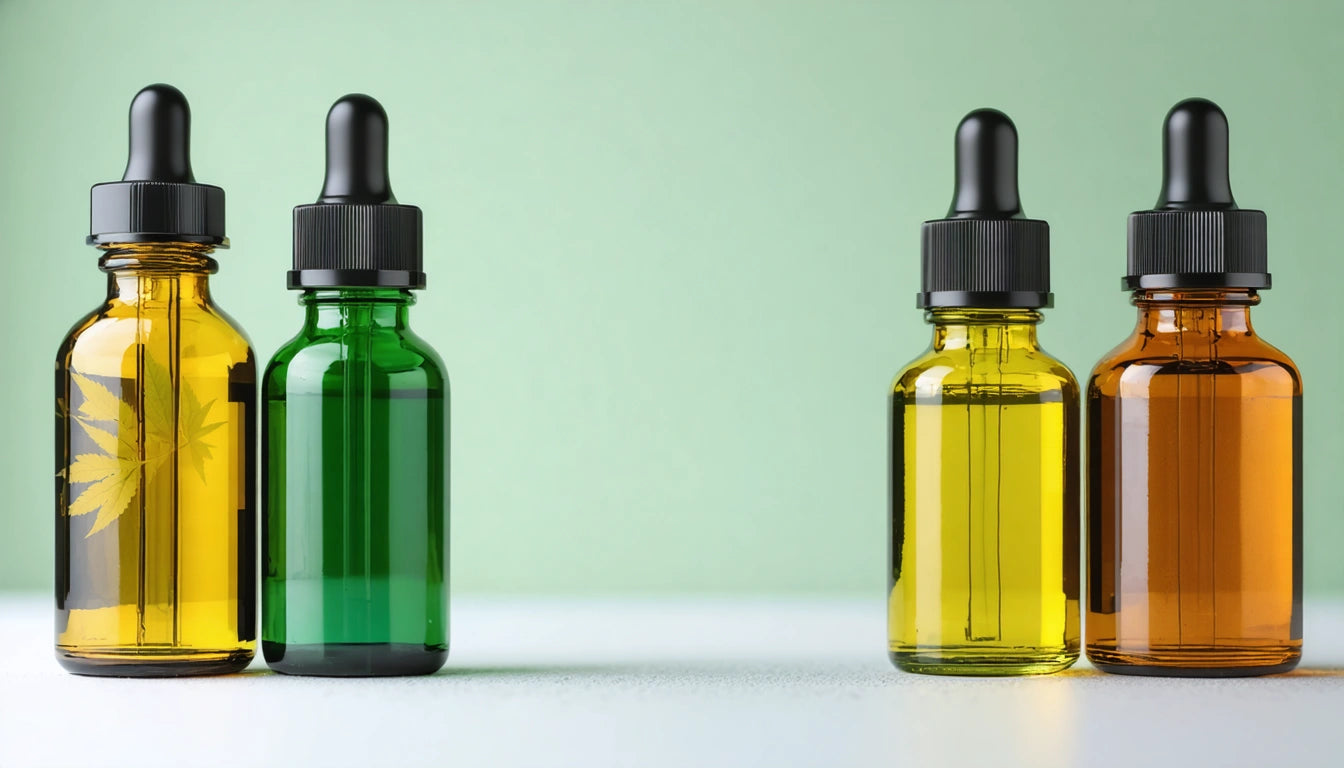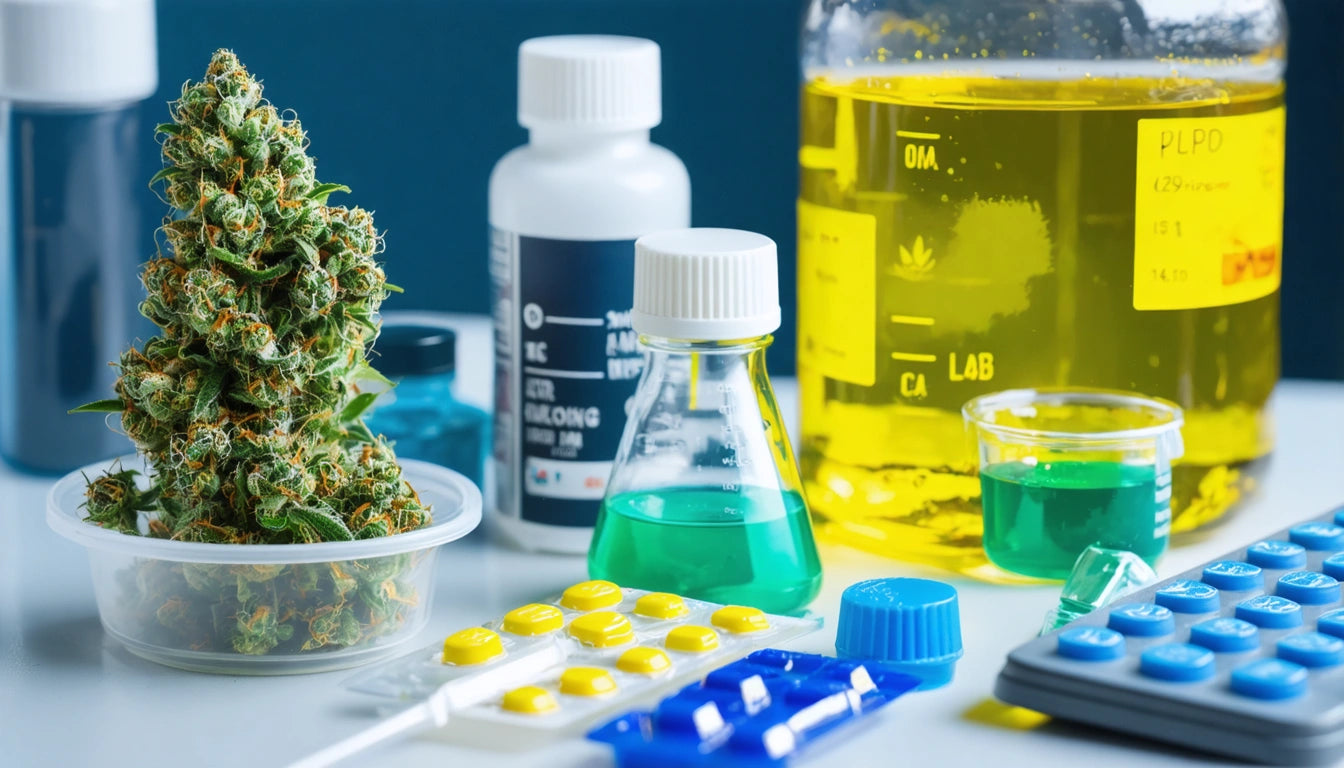Table of Contents
Cannabis affects each person differently, and while many enjoy its relaxing properties, others experience anxiety, paranoia, or racing thoughts. Understanding why certain strains trigger these responses can help consumers make informed choices and have more positive experiences.
THC to CBD Ratio: The Anxiety Connection
The primary reason some cannabis strains cause anxiety is their cannabinoid profile, particularly the ratio of THC (tetrahydrocannabinol) to CBD (cannabidiol).
THC: The Anxiety Trigger
THC is the main psychoactive component in cannabis. At higher concentrations, it can overstimulate the amygdala, the brain region responsible for fear responses. This overstimulation can manifest as anxiety, paranoia, or racing thoughts.
According to research, THC activates CB1 receptors in the brain, which can increase heart rate and alter perception in ways that may feel uncomfortable for some users. Products with THC levels above 15% are more likely to induce anxiety, especially in occasional users or those with sensitivity.
CBD: The Anxiety Buffer
CBD, on the other hand, has anxiolytic (anti-anxiety) properties. It can counteract some of THC's psychoactive effects by indirectly influencing how THC binds to receptors. Understanding the difference between THC and CBD is crucial for anxiety-prone consumers.
Strains with balanced THC:CBD ratios (1:1 or 1:2) typically produce less anxiety than high-THC varieties. This balance allows for therapeutic benefits while minimizing unwanted psychological effects.
Terpene Profiles and Their Influence on Anxiety
Beyond cannabinoids, terpenes play a significant role in how cannabis affects mood and anxiety levels.
Calming Terpenes
Some terpenes have relaxing properties that may help reduce anxiety:
- Linalool: Also found in lavender, this terpene has sedative and anxiety-reducing effects
- Myrcene: Provides relaxing, sedative effects that can counteract anxiety
- Beta-caryophyllene: Interacts with the endocannabinoid system to potentially reduce anxiety
Stimulating Terpenes
Other terpenes may increase alertness and potentially contribute to anxiety:
- Limonene: While uplifting for many, its energizing effects can intensify anxiety in sensitive individuals
- Terpinolene: Often found in sativa strains, it has stimulating properties that may exacerbate anxiety
- Pinene: Can increase mental alertness, potentially contributing to racing thoughts
Learning what terpenes are and what they do can help you select strains less likely to cause anxiety.
Personal Factors That Affect Cannabis Response
Individual differences significantly influence how people respond to cannabis.
Genetic Factors
Research suggests genetic variations in the CB1 receptor and enzymes that metabolize cannabinoids can affect susceptibility to cannabis-induced anxiety. Some people are simply more sensitive to THC's effects due to their genetic makeup.
Tolerance and Experience
Regular cannabis users typically develop tolerance to THC's anxiety-inducing effects. First-time or occasional users are more vulnerable to anxiety reactions. Building tolerance to cannabis often reduces anxiety responses over time.
Pre-existing Anxiety Conditions
Those with anxiety disorders or a predisposition to anxiety may be more susceptible to cannabis-induced anxiety. For these individuals, even moderate THC levels can trigger or worsen anxiety symptoms.
Dosage Considerations for Anxiety Prevention
Proper dosing is perhaps the most crucial factor in preventing cannabis-induced anxiety.
Start Low, Go Slow
For anxiety-prone individuals, the mantra "start low, go slow" is essential. Beginning with minimal doses allows you to gauge your response before increasing consumption. When trying new products, we recommend using precise measuring tools like digital scales to ensure consistent, controlled dosing.
Microdosing Approach
Microdosing involves consuming very small amounts of cannabis to achieve subtle effects without triggering anxiety. Understanding what microdosing means can be particularly helpful for those sensitive to THC.
Consumption Method Matters
The method of consumption affects how quickly and intensely cannabis affects you:
- Inhalation (smoking/vaping): Effects occur quickly but dissipate faster
- Edibles: Slower onset but more intense and longer-lasting effects, which can increase anxiety risk
- Tinctures/oils: Allow for precise dosing and moderate onset time
For anxiety-prone individuals, methods allowing precise control and gradual onset are often preferable.
Strain Selection for Anxiety-Prone Individuals
The traditional categorization of cannabis into indica, sativa, and hybrid varieties provides some guidance, but it's not always reliable for predicting anxiety effects.
Beyond Indica vs. Sativa
While indicas are generally associated with relaxation and sativas with stimulation, understanding what indica vs. sativa vs. hybrid actually means reveals that these distinctions are often oversimplified. The specific cannabinoid and terpene profile matters more than the plant's physical characteristics.
Recommended Strain Characteristics
For those prone to anxiety, look for strains with:
- Moderate to low THC content (under 15%)
- Higher CBD levels (at least 4% or a 1:1 ratio with THC)
- Presence of relaxing terpenes like linalool and myrcene
- Established reputation for calming effects
Mindful Consumption Practices for Better Experiences
Beyond strain selection and dosing, the context and mindset of consumption significantly impact the experience.
Set and Setting
Consuming cannabis in comfortable, familiar environments with trusted people reduces the risk of anxiety. Stressful settings or unfamiliar social situations can amplify anxiety tendencies.
Coping Strategies
Having strategies ready if anxiety occurs can help manage the experience:
- Focus on slow, deep breathing
- Remind yourself the feelings are temporary
- Have CBD products available to potentially counteract THC effects
- Use grounding techniques like the 5-4-3-2-1 method (identify 5 things you see, 4 things you feel, etc.)
If you do consume too much, knowing what to do if you get too high can help manage anxiety symptoms.
By understanding your personal response to cannabis, selecting appropriate strains, controlling dosage, and creating supportive consumption environments, you can significantly reduce the likelihood of experiencing anxiety and enjoy the benefits cannabis has to offer.











Leave a comment
All comments are moderated before being published.
This site is protected by hCaptcha and the hCaptcha Privacy Policy and Terms of Service apply.